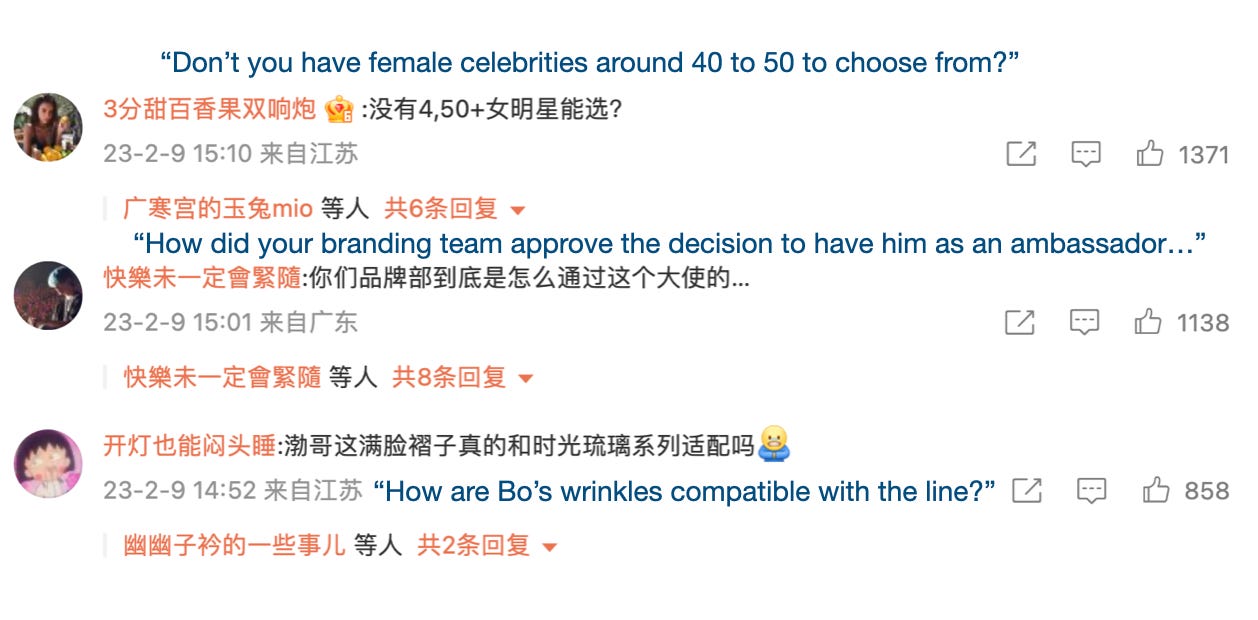Weekly #9: Single shaming marketing 😡, uncles as new face of beauty👴, gaming companies enter medical 🩺 | Following the yuan
Don’t you think the world would be a better place without this in-your-face, single shaming marketing?
I have a bone to pick with Baidu Maps. It’s a map service, it doesn’t sell handbags, fragrance, or makeup, but it still seems intent on creating relationship anxiety for single people.
Its Valentine’s Day landing page was a dumb cartoon of a couple riding a bike together, as if it’s not an activity one can do alone. Does my bitter tone betray my singleness? Maybe. But my point is that couple culture can be suffocating in China.
In fact, Baidu is not alone. review app Dianping is doing the same. Just stop, ok?
Valentine’s ads are unavoidable and in China we get three a year — Feb 14, May 20 (it sounds like ‘I love you’ in Mandarin), and the traditional Qixi 七夕, which falls on the 7th day of the 7th month of the lunar calendar. That’s a lot of happy couple advertisements.
With ad after ad proclaiming the virtues of being in a relationship, I’m hoping (naively perhaps) for a culture change. We need some single positivity. Though I doubt Beijing will agree given its concern (read panic 😨) over the declining birth rate.
1. Uncles as China’s new face of beauty 👴
Enough with my rant, let’s talk about brand ambassadors.
Last Thursday, Japanese beauty brand Shiseido officially announced 48-year-old actor Huang Bo as the latest ambassador for its "Future Solution LX" line, which caters to older women.
Huang has played the fool in many well-liked slapstick comedies, but Weibo users aren’t buying it. “Don’t you have female celebrities around 40 to 50 to choose from?” read one top-voted comment. “How are Bo’s wrinkles compatible with the line?” another quipped.
Shiseido’s move may be indicative of a broader marketing shift in China, which is the namesake group’s largest market. For years before 2021, skincare and makeup brands have prioritized young, male celebrities who are so-called “little fresh meat” idols. Following the government crackdown on celebrities of “lapsed morals” 失德艺人, which spans tax evasion (Fan Bingbing and Zheng Shuang, both are female), politically insensitivity (Zhang Zhehan), and rape (Kris Wu), brands are refocusing.
Could middle aged actors become the new thing? Let’s wait and see. Endorsement trends come and go, last time we heard it was sports personalities for their positive vibes, but this momentum seemed to slow after the Winter Olympics. Either way, the priority right now seems to be picking a safe, government approved, face.

2. Bye bye heels 👠
Fewer women want to wear high heels in China. It’s a downward consumption trend causing Chinese footwear companies, such as Red Dragonfly, Saturday Co., and Daphne, to flounder.




